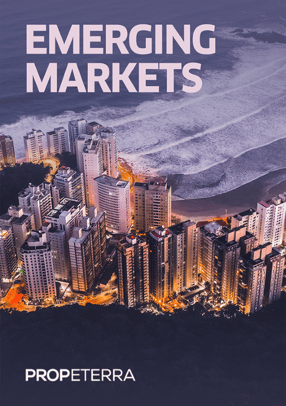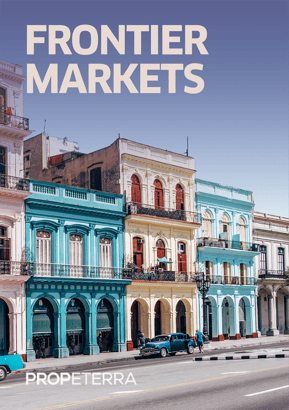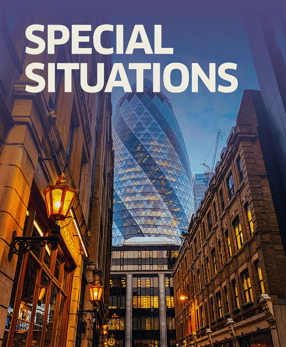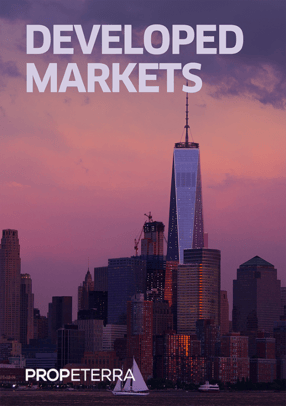Mudafy founders entrepreneurs Franco Forte and Lucas Díaz want to remodel the process of buying and selling a property. The Argentine proptech aims to streamline real estate transactions so that they are faster, more reliable and more transparent. Their technology-driven solution has a number of facets. Mudafy first improves the customer experience by offering virtual 360° tours, showings and appraisals which are bookable online. The virtual tours do not consist of just a video of the premises, but rather an immersive experience. The tour’s objective is to make the viewer feel as if they are standing in the room, with tiny details and views from the window clearly visible. Despite a general lull in demand during the Covid-19 pandemic, the virtual tours feature has been a game-changing value-add for the company, especially since multiple properties can be toured in one call. It has been estimated that the platform’s users spend roughly 70% less time on the purchase or rental process. Customers can also take advantage of the dynamic benchmark property price data, accessible on the online platform. They also work with a number of the most popular portals in the region, such as ZonaProp and Argenprop, so that the properties on their platform are at the top of the search results and therefore are more likely to be enquired about. Perhaps most importantly, the platform offers transparency. Buyers and renters in the region are often put off by stifling bureaucracy: high interest fees and large deposits are the norm. Mudafy clearly sets out a property’s costs, eliminating these expensive headaches.
Mudafy co-founders Lucas Díaz and Franco Forte. Image: Mudafy
On the real estate agent side, they provide a number of tools. Brokers work with Google Street View to show a property’s façade and with local government data to indicate to their customers whether there is any building work likely to be happening in the area. The platform’s data means they can filter more inappropriate properties for an individual client, and therefore leads to them closing on properties faster than traditional brokers. Mudafy, whose team took part in the prestigious startup accelerator program Y Combinator in Mountain View, California, has already gained 30,000 monthly users and has over 10,000 properties on its platform, an impressive feat.
Alquilando, launched in January 2016, is another Argentine proptech revolutionising the property market, with a focus on long-term rentals. In 2019 it raised $1.1 million in a Pre-Series A round from investors including Rosental Inversores and NXTP Labs. Its online platform incorporates fintech and insurtech to optimise the process for both owners and tenants. Owners and managers can easily monitor their rentals’ status, with payments, repairs and other features all visible on the platform. Commissions are automatically allocated. Access to real estate agents is immediate and the secure platform enables rents to be collected on time even if the tenant pays late. Owners can even request rent advances of up 50% of the contract’s value via the platform and score tenants on a variety of metrics. The tenant experience is also transformed: tenants can upload proofs of payments, report incidents and manage inquiries, all from one portal on their mobile phone. You can make rental advances and automate rental payments. Alquilando works with Argentina’s main insurance and surety companies, such as BBVA Seguros and AvalTotal, which means users can compare a wide range of offers before picking the one which best suits them. Alquilando, which won the Argentine round of the Seedstars World Competitions, with its customisable features and simplified processes, looks set to recast the rental industry.
State of the market
There are very few restrictions on foreigners owning property, except for in rural areas and those close to the border. Transactions are almost always completed in US dollars given the whipsawing Argentine Peso. Stamp Duty is low, averaging 3.6%, and VAT is relatively low, at 10.5% for new buildings, 21% for other buildings and 0% for new land. However, from an investment standpoint, there is still considerable cause for concern. Argentina is, in short, stuck in a vicious economic cycle: a protectionist trade policy and unprofitable companies means it cannot generate enough revenues as a country to repay its dollar debts. This leads creditors to raise interest rates and so debt payments rise even higher, plunging the country into sovereign debt crises and multi-year recessions. Argentina has defaulted on its sovereign debt nine times and in 2020 the economy, struggling under the weight of the pandemic, contracted 10%. The impact of Argentina’s economic woes are felt in the property market. An inflation rate of 53.8% during the first month of 2021, compared to 2.3% in the US, has driven away potential buyers and renters. Properties are often priced in dollars, but almost all mortgages are peso-denominated, rendering offerings unsustainable and volatile. Apartment prices in Buenos Aires have dropped, but this has not been enough to encourage sales, currently at a very weak level. These difficulties have arisen in the context of social isolation, which has brought with it office shutdowns and reconfigured working habits and costs.
Proptechs Mudafy and Alquilando have provided many of the real estate industry’s stakeholders with two technology-driven platforms that serve to cut out inefficiencies and increase process transparency. However, whilst they may have made positive progress in terms of reducing the burdens of high interest fees, deposits and commissions and wasted time, the outlook, in the short-term at least, looks bleak for Buenos Aires’ housing market.





